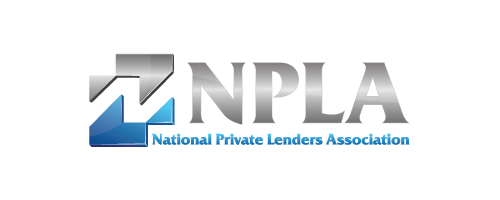What New York Senate Bill S5257C Could Mean for NYC Real Estate

Authored by Ruben Izgelov, Co-Founder & Managing Partner of Nationwide Private Lender, We Lend.
From the perspective of hotel and office building owners stuck with unproductive assets, the Housing Our Neighbors with Dignity Act provides a much-needed lifeline. However, under Senate Bill S5257C, these property owners could find themselves selling for a lower price as the only buyer will be the government or its partners.
New York Senate Bill S5257C
Newly passed legislation, New York Senate Bill S5257C, allows New York State to purchase financially distressed hotels and office buildings statewide. Once acquired, the state can convert these distressed assets into apartment buildings and then transfer them to nonprofits to manage as affordable housing.
Two rival CRE conversion proposals went toe-to-toe before the adoption of Senate Bill S5257C. The bill proposed by the New York Senate, known as the “Housing Our Neighbors with Dignity Act,” competed against a contrasting proposal from former Governor Cuomo earlier this year.
Cuomo’s proposal in January 2021 would have enabled certain types of vacant hotels and office buildings in specific districts to be converted into multifamily properties. Under this proposal, developers would have a two-year window to make the conversions and would have been required to set aside 25 percent of the units for affordable housing. While Cuomo has since resigned as Governor, this plan could have been a blueprint for newly appointed Governor Hochul to work from.
Then came Senate Bill S5257C, which the Governor has since signed. This bill is a radical departure from Cuomo’s proposal and relies almost entirely on the public sector to convert CRE into residential units.
Meanwhile, local real estate developers looking to convert vacant CRE units are going through a period of uncertainty. It is crucial to understand the difference between the two proposals and the impact this legislation will have on the market.
Cuomo’s Proposal
A deeper look into Cuomo’s plan:
- The property classes the proposal applied to are: hotels with fewer than 150 rooms, class B and C office buildings, or new office buildings in financial distress.
- Hotels in Manhattan must be between the Financial District and 110th Street. There are no geographic restrictions when it comes to the outer boroughs.
- For offices, the proposal only applied to those based in Manhattan, specifically between Park Ave. and 9th Ave., and 14th St. and 60th St.
- Furthermore, as reported by The Real Deal, office buildings must either have had a certificate of occupancy as of January 1, 1980, or as of December 31, 2020, and must also be bankrupt or under receivership.
- The affordable housing requirement is 25% of units. Developers also had the option to avoid this entirely by paying into an affordability fund. The fund option was scrapped following pressure from some groups that argued the affordability requirement was insufficient.
The State Senate Proposal
Included in the State Senate proposal:
- The same property classes as Cuomo’s proposal: hotels and office buildings.
- Any financially distressed or for-sale hotels and office buildings statewide. No geographic boundaries.
- 100% of the residential units would need to be affordable, defined as 50% of the area’s median income or below. Also, 50% of the units would be made available for people experiencing homelessness.
- New York State would finance the acquisition and conversion of these assets, using $250 million already set aside in the budget. There are also federal grants that could be made available. The properties would then be sold or leased to nonprofit affordable housing management companies.
Possible Impacts of the Proposals
From the perspective of hotel and office building owners stuck with unproductive assets, the Housing Our Neighbors with Dignity Act provides a much-needed lifeline. However, under Senate Bill S5257C, these property owners could find themselves selling for a lower price as the only buyer will be the government or its partners.
This brings us to the significant issue with the bill, in that it effectively freezes out the private sector from having any involvement in the conversions. This will have several significant drawbacks for all stakeholders.
First, it will limit the number of converted properties significantly because of the State’s limited budget. This decision could result in fewer affordable units delivered, compared to the 25% of affordable units from a likely much higher number of total conversions under Cuomo’s private sector backed-plan.
Second, the capital costs of the State Senate proposal will come out of the taxpayers’ pockets. In contrast, Cuomo’s plan would have transferred the cost of the conversions to affordable housing units onto the developers.
Moreover, the New York City real estate industry is going through a profound transformation given the impact of COVID-19 and the shift to working from home. The private sector should help facilitate this transformation.
Shutting out the private sector will decrease the number of new affordable residential units delivered, exacerbating the current affordable housing deficit.
Final Thoughts
The rival proposals were established on two different ideologies:
- On the one hand, former Governor Cuomo’s proposal was based on the idea that the best way to produce affordable housing is to allow the free market to function while requiring private developers to create affordable housing as a by-product.
- On the other hand, the New York State Senate proposal is based on the theory that big government knows best.
- The former proposal may help make a dent in the lack of affordable housing that exists today. The latter is a misguided and significantly under-capitalized approach by the Government to enter the real estate development business. History tells us time and again which is the more successful approach.
Author Bio:
Ruben Izgelov is the Co-Founder & Managing Partner of Nationwide Private Lender, We Lend, and a Founding Member of the National Private Lenders Association.
www.welendllc.com
